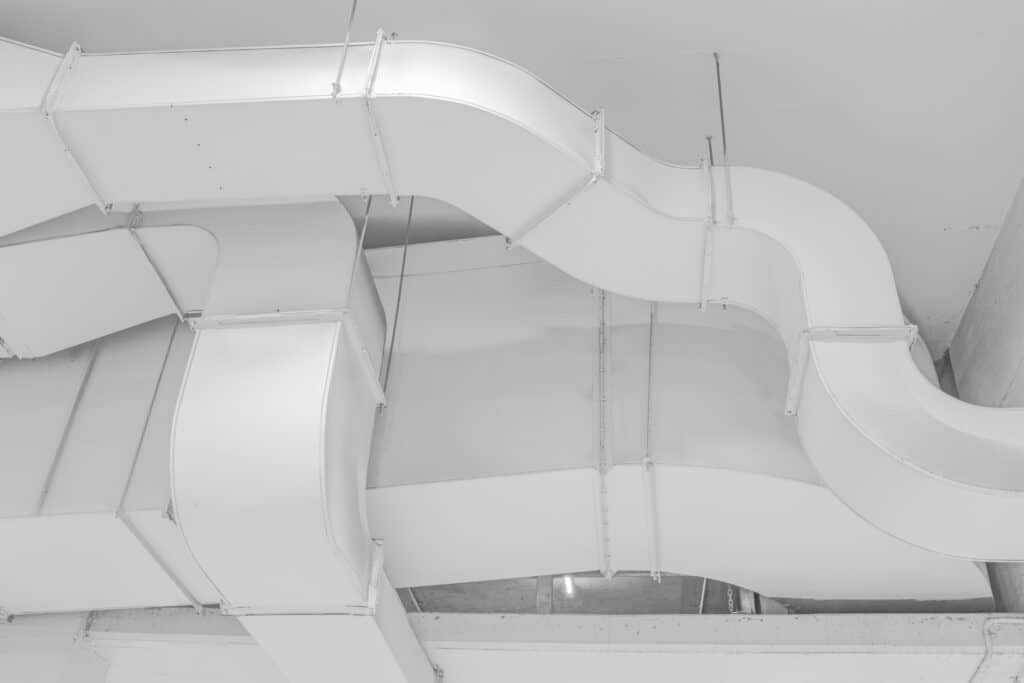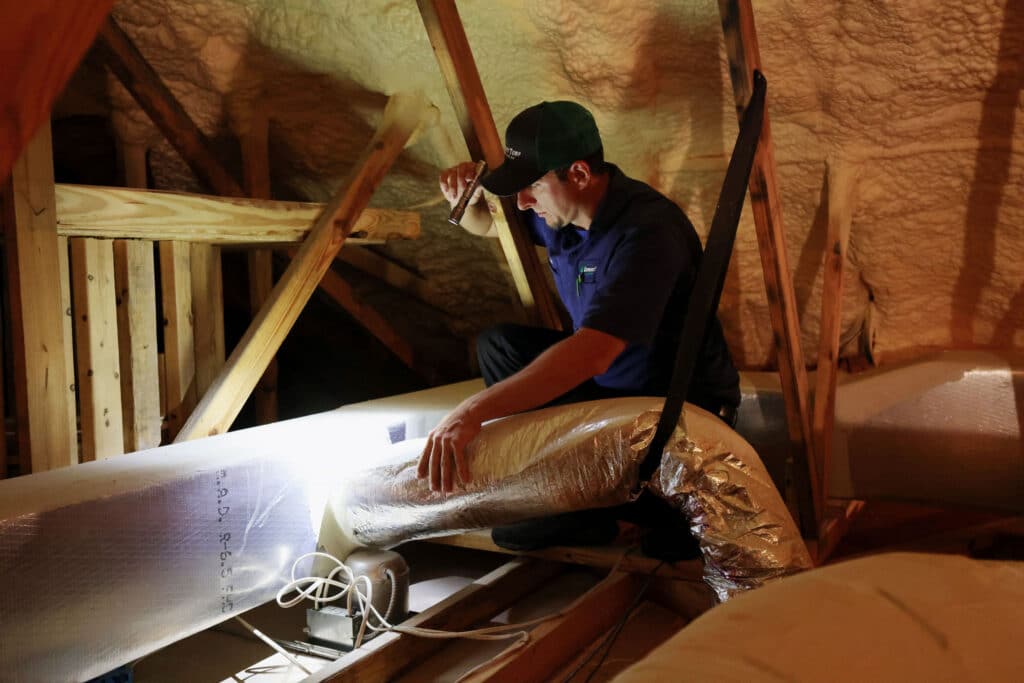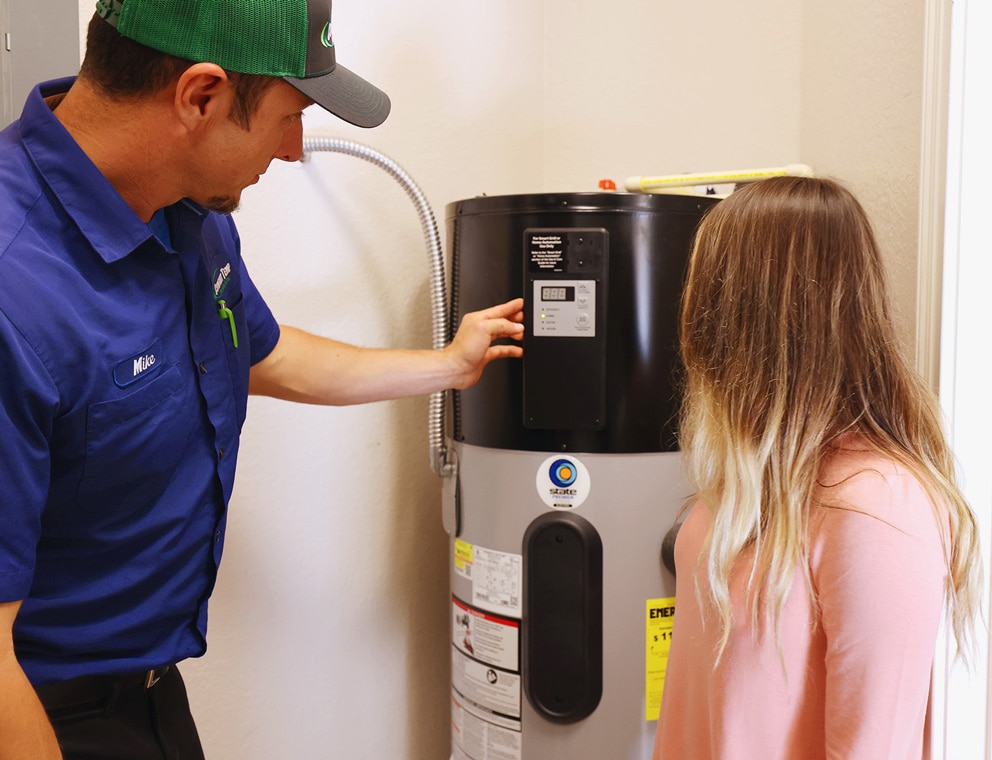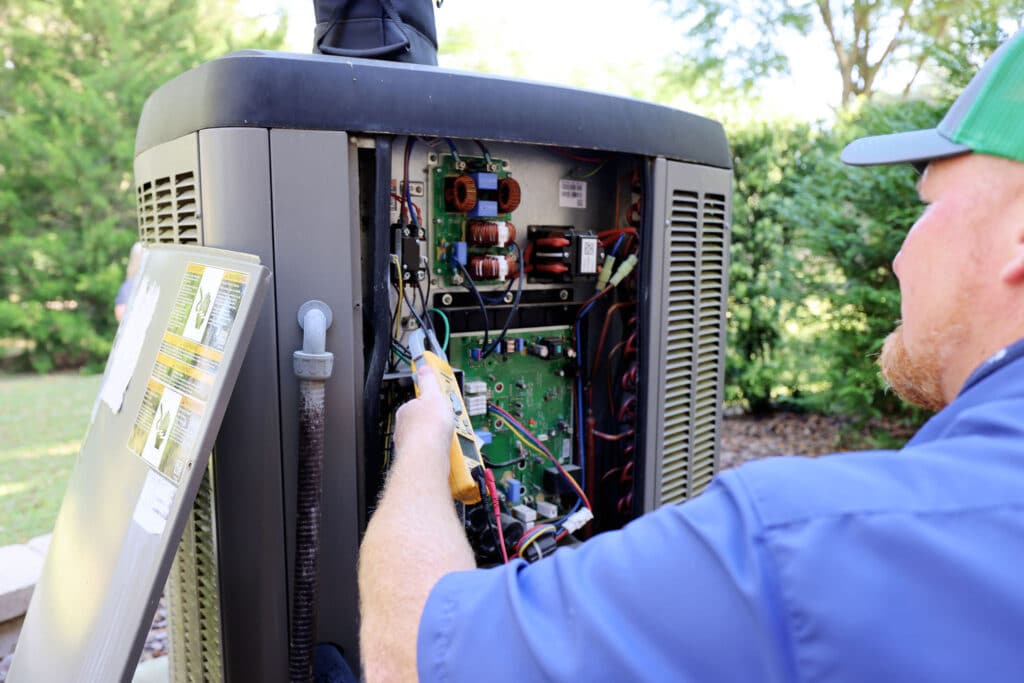Every heating and cooling system, whether residential or commercial, has an entire hidden system of air ducts or ductwork. So how exactly do the parts of ductwork function, and why does it matter? We’re here to provide you with a guide to the basics of ducts so you can keep your home’s HVAC system running smoothly.
How Does Ductwork Work?

Ducts are the pipes or channels that distribute all the air in your building. They work in conjunction with other components to form a full ductwork system. Here are the four main categories of parts, fittings, and pipes that make up ductwork:
- Duct Pipes and Trunks: Typically made from steel, these components are like a highway for your air to travel through.
- Plenum: The air distribution box where the air gets pushed to and from rooms to the heating and cooling system.
- Air Handler Unit: Also known as the AHU, these units are attached to the duct system and contain heating and cooling elements.
- Dampers: On a day-to-day basis, dampers regulate airflow, but in a fire, they can seal off a duct from moving smoke around your home.
Signs Your Ductwork Needs Service
Since ducts are behind your walls, it’s easy to forget they could be a source of air conditioning troubles. Don’t wait until it’s too late—the following list contains warning signs that you may need to service your ducts.
- Lack of airflow from vents
- High utility bills
- Hot and cold spots
- Loud noise
- Low air quality
Signs of a Leaky Duct
Leaky HVAC ducts may not sound like such a big deal, but they can cause many issues that make it hard for your system to function as it should. If these problems aren’t addressed, they can lead to more significant disrepair, costing you both time, money, and discomfort from inadequate cooling or heating. Some duct leaks can be seen through visual inspection. If you have leaks, you may see rust, kinks, or old-looking seals. Sealing these leaks comes with a myriad of benefits for your home.
Some signs of leaking ducts include the following.
Higher Energy Bills
It’s not unusual to see your utility bills get higher during seasons of more frequent usage, like winter or summer, when your unit works to keep you warm or cool. But if you notice that your bills suddenly increase sharply, leaking ducts could be to blame. Compromised ducts make your HVAC unit work harder, and you’ll feel the pinch when your monthly energy bill arrives.
Inconsistent Heating or Cooling
If you have leaking HVAC ducts, you may also notice that some areas of your home seem better cooled or heated than others. This is due to the limited airflow, making your rooms feel stuffy. Similarly, you may notice that some rooms are hot and cold at the same time.
Excessive Dust
Dust naturally accumulates in homes, but if you notice that it seems to reappear soon after you’ve dusted, leaky ducts may be the reason. If your ducts have leaks, non-filtered air can escape and redistribute the dust it’s picked up from your rooms back into them. You can change your HVAC filter regularly, but if you have leaks, you’ll still notice this issue.
Reasons for Ductwork Complications

Air Duct Wear and Tear
Just like the rest of your home, ducts require maintenance to perform their best. Dirt build-up can cause mold or odors to penetrate your home that must be removed through duct cleaning. Old ducts can also corrode, letting moisture escape and causing humidity and leaks.
Incorrect Design and Installation
Ensuring that your ducts are installed by a professional is the only way to know that the right type of ductwork is installed in your home. Something as small as having air vents in the wrong locations can cause your air conditioning to work overtime and run unnecessarily high bills.
Damaged Ductwork
Design is just as crucial as installation. Proper sealing is required for all ducts, or you could face leaks and mold. Ducts need insulation between the pipes and walls to keep the temperature consistent. Without insulation, your air conditioner will work overtime to cool your home. If you think your ductwork is experiencing these problems, like mold, pests, or air loss, connect with our team for an inspection!
Don’t Neglect Your Ductwork
We understand that you run on a schedule of busy days, so you don’t have the time to stress over the health of your ductwork. That’s why Comfort Temp has a trusted team ready to take care of your needs with only one phone call. Let our expert technicians repair and maintain the parts of ductwork in your home the right way so you can enjoy comfortable temperatures year-round!


